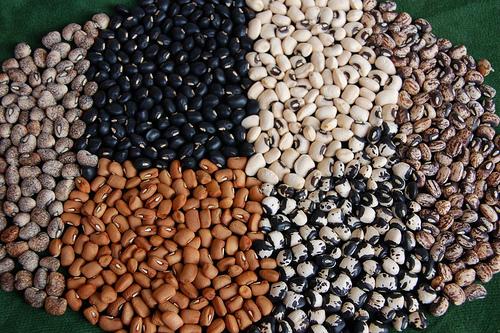
The Centre for Scientific and Industrial Research (CSIR) for the first time in history has released five varieties of cowpea through the exploitation of molecular technology simultaneously.
The varieties are; Zaayura Padi, Soo-Sima, Diffeele, Wang Kae and Kirkhouse Benga one.
Dr Stephen K. Nutsugah, Director of Savana Agricultural Research Institute (SARI) of CSIR who described the release of the five varieties as ground breaking event, said the varieties had three to four times higher yield than the other cowpeas.
Dr Nutsugah who made this known at the West African Cowpea Consortium (WACC) Annual meeting and Training Session in Accra for 41 participants said CSIR-SARI intends to release the latest varieties this year before the commencement of Ghana’s crop season.
The programme organised by CSIR-SARI and Kirkhouse Trust, a US based firm aimed at strengthening human and institutional capacity for cowpea research as well as providing selected infrastructure and equipment to enhance research capacity in cowpea improvement programme.
In Ghana, it is estimated that farmer yield of cowpea is 0.4 tonnes per hector however the new varieties are expected to increase farmer yield to 1.2 tonnes per hector.
Dr Nutsugah recounted that research into the new five varieties began in 2008 after scientists identified new sources of cowpea aphid resistant genotypes.
The Director of SARI noted that the new varieties were pest and disease resistant and would last longer.
He commended Kirkhouse Trust for bringing together research scientists and other professionals to create and disseminate international public goods that improve production and productivity that are pro-poor, gender equitable and environmentally sustainable.
Professor Michael Timko of University of Virginia, noted that over 75 per cent of cowpea production which took place in sub-Sahara Africa provided primary source of protein, income for small-holder farmers and contributed to subsistence crop farming.
However, he noted that the monetary loss in cowpea estimated between 100 million to one billion dollars annually was worrying.
Professor Timko said that was the reason why WACC and Kirkhouse Trust were building partnership to support cowpea improvement in West Africa through the use of molecular assisted breading and selection.
Dr V.K. Agyeman, Director General, CSIR commended Kirkhouse Trust for their increased and sustained support for research in Ghana
According to Dr Agyeman “CSIR-SARI alone has been a major beneficiary of a number of interventions since 2008 with an anticipated funding amounting to $656,333 dollars.”
Dr Agyeman said one of the major challenges of variety development was the expensive process and the long-time development process depending on the crop life cycle and breading strategy adopted.
In addition, the Director General noted that special skills were required to undertake the exercise.
He lauded government’s commitment towards developing agriculture and development of E-agriculture platform to address farmers needed.
Dr Agyeman said CSIR and Ministry of Food and Agriculture would work to ensure that cowpea was inculcated into government’s campaign on Planting for jobs.
He said transformation of livelihoods and reduction of poverty in West African Sub-region could be achieved if resultant low agricultural productivity was reserved.





